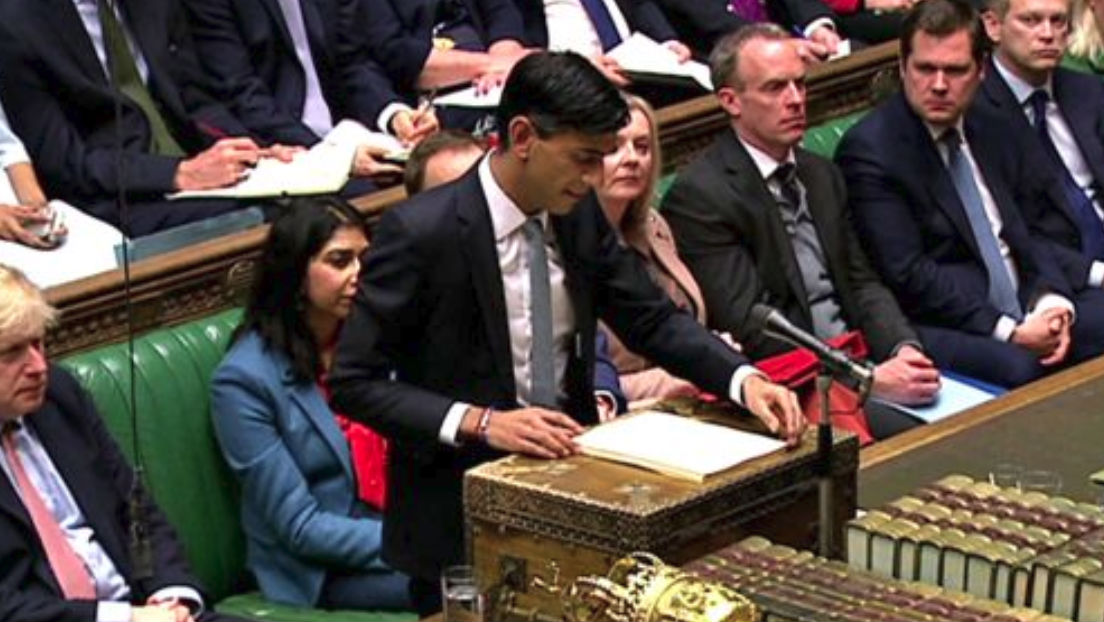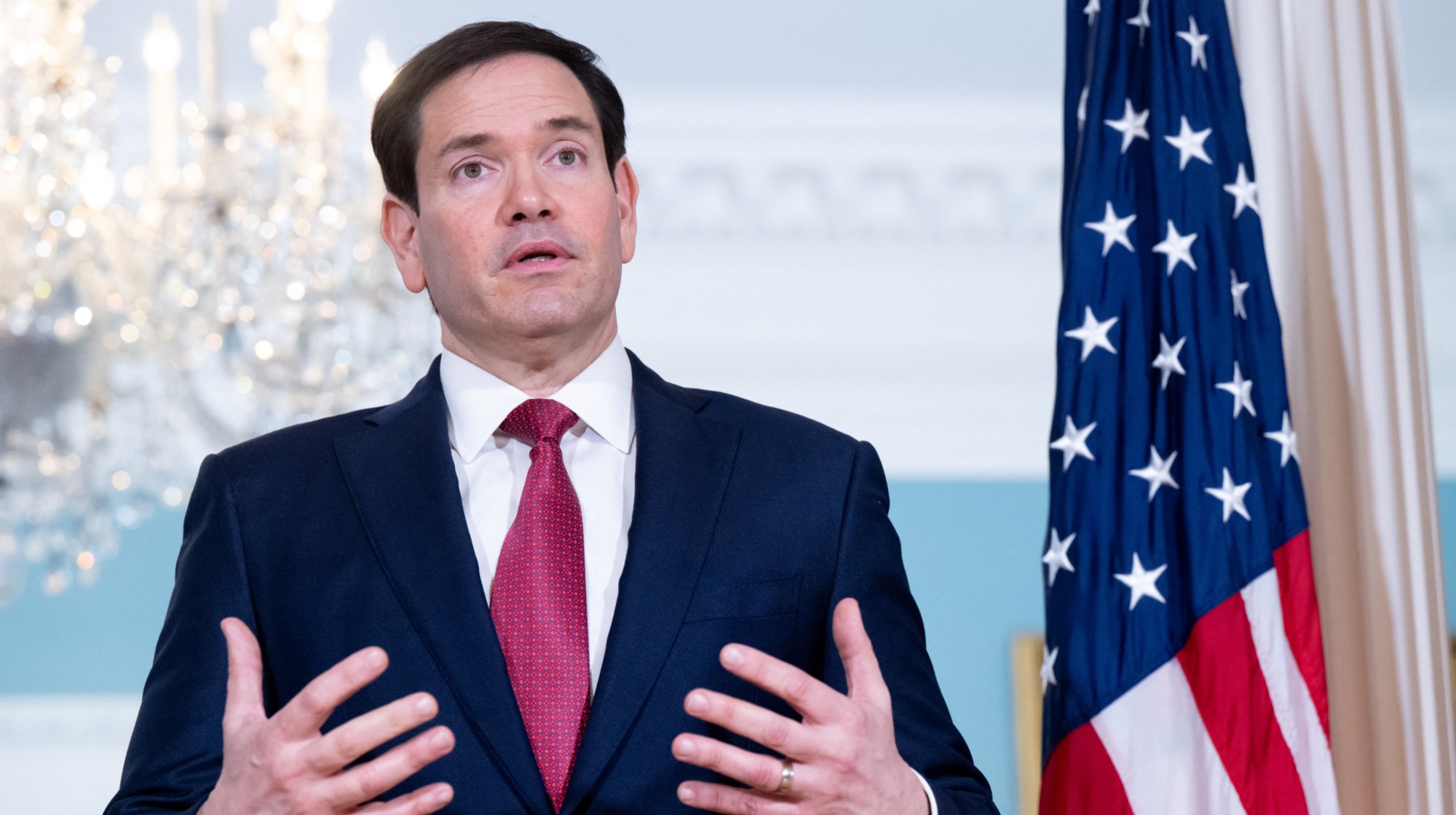Can new asylum plans boost Sunak’s standing?
Prime minister may be hoping tough new migration policies will divide the Labour Party and find backing from voters

A free daily email with the biggest news stories of the day – and the best features from TheWeek.com
You are now subscribed
Your newsletter sign-up was successful
At least three people are feared dead after a small boat capsized and sank in the middle of the English Channel, prompting a major search-and-rescue operation.
The government confirmed that 43 people had been rescued after Royal Navy and Coastguard rescue teams, including a helicopter, “faced a race against time, as temperatures plunged to -3°C last night”, reported The Sun.
The tragic case comes just a day after Rishi Sunak unveiled a new five-point plan to limit migration to the UK, including a new deal with Albania that will dramatically speed up deportations to the Balkan state.
The Week
Escape your echo chamber. Get the facts behind the news, plus analysis from multiple perspectives.

Sign up for The Week's Free Newsletters
From our morning news briefing to a weekly Good News Newsletter, get the best of The Week delivered directly to your inbox.
From our morning news briefing to a weekly Good News Newsletter, get the best of The Week delivered directly to your inbox.
The prime minister told the Commons yesterday that “enough is enough” and that the asylum system is currently “not fair”.
What’s in the five-point plan?
More than 44,700 people have arrived in Britain this year by crossing the Channel in small boats, Sky News analysis shows. According to Sunak, Albanians accounted for more than a third of arrivals in the first nine months of the year – or 33,000 – compared to just 3% in 2021.
The PM’s five-point plan promises to:
- Establish a new permanent unified small boats operational command, which brings together military personnel, civilian capability and the National Crime Agency.
- Allow immigration officers to spend more of their time working exclusively on enforcement, which would increase raids on illegal business premises by more than 50%.
- Stop using hotels to house asylum seekers wherever possible.
- Double the number of asylum caseworkers to triple productivity.
- Deem Albania a “safe country”, which will mean the “majority of claims” will be rejected and thousands of people returned on “weekly flights”.
What did the papers say?
Sunak is “bigging up his new plan” to tackle immigration across most of the right-leaning papers today, said Esther Webber in Politico’s London Playbook. In an opinion article in the Telegraph, Sunak said he would exclude immigrants who are “cheating” the system in order to reach this country, while in The Sun he said he shares “people’s frustration” over the issue.
A free daily email with the biggest news stories of the day – and the best features from TheWeek.com
And yet his migration plan “raises big questions”, said the BBC’s home and legal correspondent Dominic Casciani. Much of what he is proposing with his small boats operational command is “already being done in some shape or form… so it’s not clear yet what is changing”.
His proposals for dealing with Albanians rest on “disputed” claims, Casciani added, and fast-tracking the cases would require serious resources “and it’s not remotely clear the Home Office has them”.
Sunak’s new asylum plans have been condemned by organisations that campaign on behalf of refugees as “deeply disturbing” and against international law.
Enver Solomon, chief executive of the Refugee Council, said: “Without safe routes [asylum seekers] have no choice but to take dangerous journeys. The prime minister failed to set out any concrete plans to expand these routes through a resettlement programme or an expansion in family reunion visas. Instead this government wants to treat people who come to the UK in search of safety as illegal criminals.”
What next?
Eye-catching as it is, Sunak’s entire list of measures is “small beer” compared to his most significant announcement, said Patrick O’Flynn in The Spectator.
His five-point plan will neither save the Tories electorally nor make any material change to the number of migrants reaching the UK. However, the “big bang” element of the prime minister’s statement was in fact in its second half, O’Flynn said: “the promise of new legislation early next year that will, in effect, bring about the United Kingdom’s withdrawal from a global asylum system that he explicitly – and correctly – branded ‘obsolete’”.
While the details are not yet clear, the crux of this new law appears to be that if you arrive in the UK illegally, you will not be allowed to remain. Instead, according to Sunak, you will be shipped off to another country “where your claim can be considered”.
And even if you are found to be fleeing persecution you still won’t be allowed to live in the UK because once removed you will have “no right to re-entry, settlement or citizenship”.
Rishi Sunak is “clearly hoping that Labour will vote against his proposed new asylum law next year, and that it will function as a wedge issue, with Keir Starmer on one side and a majority of voters on the other,” said Andrew Sparrow in The Guardian.
And according to O’Flynn, that is a fight that Labour cannot easily win. Consequently, Starmer “may try not to take the bait, and instead focus debate on the economy [and] the NHS... but most polling indicates that a large majority of voters are likely to be on Sunak’s side”, O’Flynn said. And “if he sticks to this mission the Conservatives can win again.”
Arion McNicoll is a freelance writer at The Week Digital and was previously the UK website’s editor. He has also held senior editorial roles at CNN, The Times and The Sunday Times. Along with his writing work, he co-hosts “Today in History with The Retrospectors”, Rethink Audio’s flagship daily podcast, and is a regular panellist (and occasional stand-in host) on “The Week Unwrapped”. He is also a judge for The Publisher Podcast Awards.
-
 6 of the world’s most accessible destinations
6 of the world’s most accessible destinationsThe Week Recommends Experience all of Berlin, Singapore and Sydney
-
 How the FCC’s ‘equal time’ rule works
How the FCC’s ‘equal time’ rule worksIn the Spotlight The law is at the heart of the Colbert-CBS conflict
-
 What is the endgame in the DHS shutdown?
What is the endgame in the DHS shutdown?Today’s Big Question Democrats want to rein in ICE’s immigration crackdown
-
 How are Democrats turning DOJ lemons into partisan lemonade?
How are Democrats turning DOJ lemons into partisan lemonade?TODAY’S BIG QUESTION As the Trump administration continues to try — and fail — at indicting its political enemies, Democratic lawmakers have begun seizing the moment for themselves
-
 How corrupt is the UK?
How corrupt is the UK?The Explainer Decline in standards ‘risks becoming a defining feature of our political culture’ as Britain falls to lowest ever score on global index
-
 How did ‘wine moms’ become the face of anti-ICE protests?
How did ‘wine moms’ become the face of anti-ICE protests?Today’s Big Question Women lead the resistance to Trump’s deportations
-
 How are Democrats trying to reform ICE?
How are Democrats trying to reform ICE?Today’s Big Question Democratic leadership has put forth several demands for the agency
-
 ‘The West needs people’
‘The West needs people’Instant Opinion Opinion, comment and editorials of the day
-
 Why is Tulsi Gabbard trying to relitigate the 2020 election now?
Why is Tulsi Gabbard trying to relitigate the 2020 election now?Today's Big Question Trump has never conceded his loss that year
-
 Will Democrats impeach Kristi Noem?
Will Democrats impeach Kristi Noem?Today’s Big Question Centrists, lefty activists also debate abolishing ICE
-
 White House halts migrant visas for 75 countries
White House halts migrant visas for 75 countriesSpeed Read Brazil, Egypt, Russia, Iran and Somalia are among the nations on the list